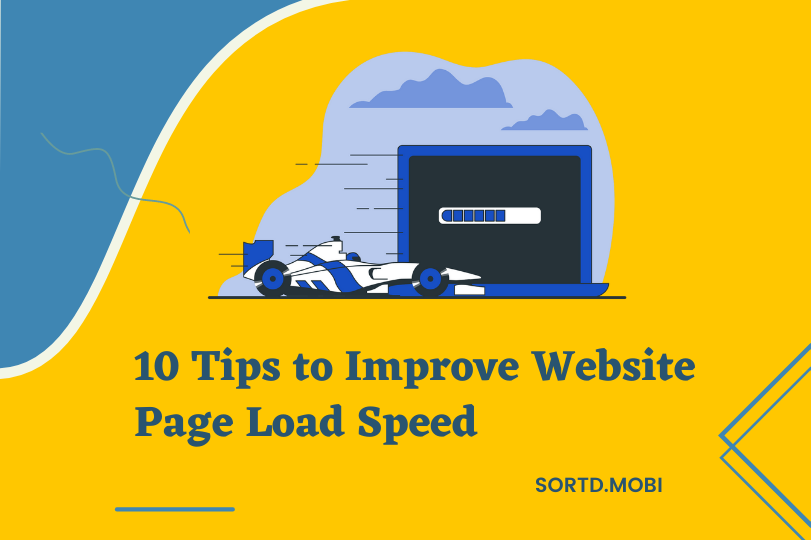In this fast world, having a fast-loading website is a crucial factor for both user experience (UX) and search engine optimisation (SEO). Users nowadays expect a fast-loading web page to instantly access the information they are looking for on the internet. Several researches have shown that a delay in load time results in reduced page views and decreased customer satisfaction leading to loss of conversions.
As websites are turning more content-heavy, it is crucial to make sure your website is designed to reduce page load speed. While multiple factors affect the page load speed—some need the intervention of a smartphone app development company — there are a few tweaks that you can do on your own. Listed below are ten techniques that can help you improve the website page load speed.
1. Use a CDN
Do you want to know how to enhance web page loading speed? You can achieve this by shortening the distance of information between your server and the end-user. This makes sense, right? Consider using a Content Delivery Network (CDN). It is a widely distributed group of servers (also known as POPs) that work in tandem to deliver your web content quickly. Whether your site uses HTML, JavaScript, images, stylesheets, or videos, a CDN is an excellent way to enhance website speed.
2. Use a fast host or configure a fast infrastructure
A robust infrastructure is a must for page speed optimisation. Make sure that your web stack is built for speed. Host your site on a higher-performance and dedicated server. Shared servers can slow down even when your website has an optimised code and clean design. Make sure you are using the latest technology while ensuring caching is optimised.
3. Reduce the number of HTTP requests
Slashing the number of HTTP requests is a highly effective method for reducing page load time. When a user visits a web page, the browser reminds the webserver, requesting the files composing the page’s content. When the server responds to the requested files, the browser renders the content on the page. The browser creates a separate HTTP request for each file comprising the page’s content. The more files on the page, the more HTTP requests, and consequently, the longer your web page takes to load. You can also consult with the best android app development company in this regard.
4. Reduce CSS and JavaScript
Another tactic is to minify or compress JavaScript and CSS files. Minification is a process of removing all unnecessary comments, characters, or spaces in the code, and uses shorter function and variable names, thereby streamlining the code. The lesser bytes of data in your code, the easier the page loading process would be.
5. Optimise images for faster page load time
What is the most common factor that slows down websites? Images and that too large images. Optimise your images, but don’t ruin the image quality. You want small size image files, but you also want a professional-looking website. There are many image optimisation plugins available nowadays, and you can use them for this purpose.
6. Clean up our media library
Over time, it is very likely that your media library may get cluttered with unused or old images. This can clog up your website and make it slow. Clean up your media library by deleting unwanted images and other media files to enhance the page load times.
7. Streamline your HTML
Streamline your HTML code to boost page load speed. Bloated HTML escalates the volume of data transferred to users, and it can also impact JavaScript performance when you are manipulating the DOM. If your HTML pages contain over 6000 lines of code before any content on the page, understand you are looking at a bloated HTML.
8. Clean up your database
Similar to the media library, your database can become bloated over time with unused information such as files or photos. Database optimisation is the process of identifying and eliminating unused data from your database. This will help your web hosting server fetch requested information quickly and efficiently.
9. Remove render-blocking JavaScript
A call is sent to every script when your web pages load in a browser. This queue of scripts needs to be completed and empty before the page is visible to the user. Render-blocking JavaScript files become a deterrent in these queues as they can take a lot of time to load. Just by blocking the primary content on the page from rendering during this time, you can enhance page load time.
10. Use Expires Headers
Expires Headers help in reducing the page load time for repeat visitors. They command the browser to request a file from the server or get it from its existing cache. This slashes the number of downloads from the server and the number of HTTP requests to push website page load time.
Conclusion
You can successfully enhance the website page load speed with the above tips. It is better to use the latest technology in building the website and keep looking for the best ways to optimise your website. Continuous updates and upgrades are the keys to getting a super-fast website.


